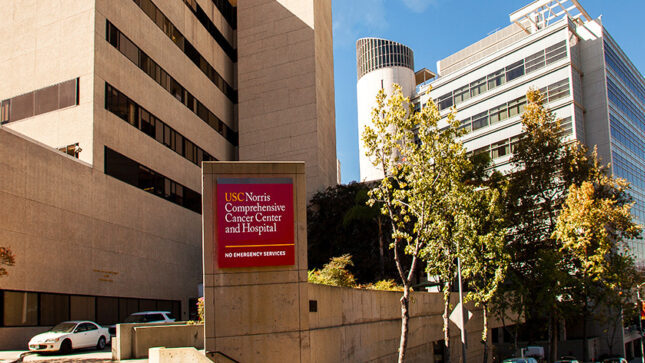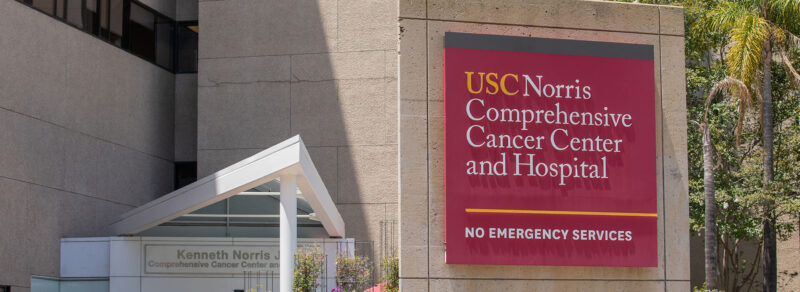Researchers at the USC Norris Comprehensive Cancer Center have discovered that targeting both the innate and adaptive immune systems together shows potential for treating aggressive cases of colon cancer.
A recent study from the USC Norris Comprehensive Cancer Center titled “Role of CD47 gene expression in colorectal cancer: a comprehensive molecular profiling study” has uncovered evidence that targeting CD47, a protein involved in the innate immune system, could be a critical step in combating colorectal cancer. This finding marks one of the first indications that combining treatments aimed at the innate immune system with traditional immunotherapy drugs, which target the adaptive immune system, could be more effective in fighting colorectal cancer. The study’s results were published in the Journal for ImmunoTherapy of Cancer.
Authors: Hiroyuki Arai, Nishant Gandhi, Francesca Battaglin, Jingyuan Wang, Sandra Algaze, Priya Jayachandran, Shivani Soni, Wu Zhang, Yan Yang, Joshua Millstein, Jae Ho Lo, Davendra Sohal, Richard Goldberg, Michael J Hall, Aaron James Scott, Jimmy J Hwang, Emil Lou, Benjamin A Weinberg, John Marshall, Sanjay Goel, Joanne Xiu, W Michael Korn, Heinz-Josef Lenz

Traditional immune checkpoint inhibitors, a type of immunotherapy, have revolutionized cancer care by enhancing the body’s immune response to fight cancer. These therapies work by blocking immune checkpoints—proteins that act like brakes on the immune system, preventing it from attacking healthy cells. Cancer cells exploit these checkpoints to avoid detection, but immune checkpoint inhibitors block this evasion.
Historically, immunotherapies primarily focused on the adaptive immune system, which kicks in after the cancer cells have bypassed the body’s initial line of defense, the innate immune system. This new research suggests that targeting both arms of the immune system could offer a more robust approach to treating cancer.
Senior Author Heinz-Josef Lenz, MD, deputy director for research programs and co-director for the Rosalie and Harold Rae Brown Center for Cancer Drug Development at the USC Norris cancer center said:
“The most important takeaway is this data suggests that CD47 is a very attractive target for drug development. The key is to develop an antibody or an engineered immune cell that can inhibit CD47 signaling, but it has to be used in combination with other drugs. The right combination is not clear yet, so more research is needed.”
Researchers have long known that colorectal cancer cells exploit the immune checkpoint CD47 to evade detection and destruction by macrophages, a type of innate immune cell. However, they sought to better understand how cancer cells manipulate CD47 and its implications for treating colon cancer.
In their recent study, funded in part by the National Institutes of Health, the researchers analyzed DNA and RNA from 14,287 colorectal cancer tumors to explore these questions. They compared tumors with high levels of CD47 expression to those with lower levels and discovered that higher CD47 expression was linked to more aggressive tumors, increased activation of cancer pathways, and a greater presence of immune cells within the tumor.
These findings suggest that developing an immune checkpoint inhibitor specifically targeting CD47 could improve treatment outcomes for colon cancer patients, especially those who do not respond well to existing immunotherapies. By blocking CD47, it may be possible to enhance the immune system’s ability to recognize and attack cancer cells more effectively.
The Role of CD47
For more information about colorectal cancer, visit oncodaily.com.




